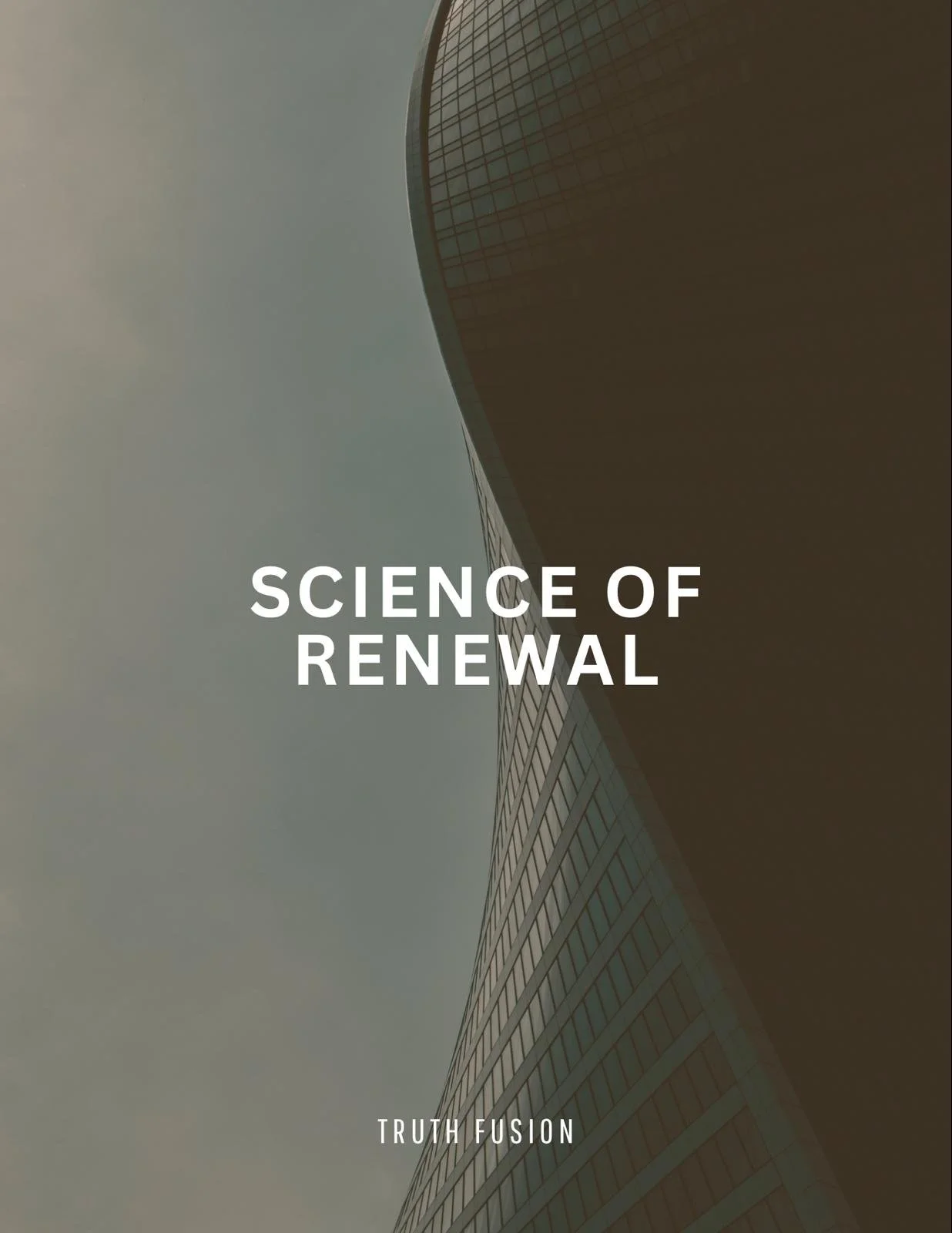The Science of Renewal: How Epigenetics, Neuroscience, and Biblical Wisdom Are Transforming Mental Health
Mental health care is at a turning point. Advances in epigenetics and neuroscience have challenged long-standing assumptions about the brain, revealing something remarkable: we are not biologically locked into our struggles. Trauma may shape us, but it does not have to define us, not in our lifetimes, and not in the generations that follow.
For years, faith and science have been positioned as opposing forces. But what if they were meant to work together? What if modern research is only now catching up to what Scripture has taught for centuries?
In my work as both a therapist and theologian, I’ve seen firsthand how the intersection of biology, psychology, and biblical truth offers something that neither therapy nor faith alone can fully provide: a framework for deep, lasting transformation.
The idea that healing can happen at the cellular level, that our thought patterns, behaviors, and spiritual practices can alter gene expression and brain structure, is more than theory. It’s happening. And it’s reshaping how we understand mental health.
Breaking the Cycle: How Epigenetics is Redefining Generational Trauma
For decades, psychology has recognized that emotional pain can be passed down through families, not just through learned behavior but at a deeper, more insidious level. Now, epigenetics has confirmed it: trauma can leave biological imprints on our genes, affecting the mental health of future generations.
Studies on Holocaust survivors, for example, show that their children and grandchildren carry biological markers of stress, even if they never experienced trauma firsthand (Yehuda & Bierer, 2009). Similar findings have emerged in research on children of war survivors, abuse victims, and those who endured extreme poverty.
This may sound discouraging at first, but there’s a second half to the story: just as trauma can be inherited, so can healing.
• Studies indicate that prayer, gratitude, and intentional thought patterns can actually reverse stress-related gene expression, rewriting what was once believed to be permanently encoded (Epel et al., 2009).
• Generational cycles are not destiny, they are patterns. And patterns, once identified, can be broken.
The idea of breaking generational chains isn’t just a modern psychological insight, it’s deeply embedded in biblical tradition. Exodus 34:7 speaks of struggles passing through generations, but Scripture repeatedly affirms God’s power to restore and renew. Today, science is simply explaining how that restoration happens at a biological level.
The Brain is Not Static: What Neuroscience Reveals About Renewal
For much of history, mental health struggles were seen as fixed traits, unchangeable realities of personality, genetics, or life circumstances. Neuroscience now tells a different story.
The discovery of neuroplasticity—the brain’s ability to rewire itself, has changed everything. Research has shown that:
• Repeated thought patterns physically reshape the brain. Anxiety reinforces neural pathways that make fear the brain’s default mode. But intentional shifts in thought patterns, through therapy, prayer, or structured cognitive exercises, can rewire the brain for resilience (Doidge, 2007).
• Spiritual practices, including prayer and meditation, strengthen the brain’s emotional regulation centers. MRI scans show that regular prayer enhances activity in the prefrontal cortex, the area responsible for decision-making and emotional control (Newberg et al., 2010).
• Worship and gratitude literally change brain chemistry. These practices increase levels of dopamine and serotonin, the neurotransmitters linked to joy and mental stability.
This aligns with Romans 12:2: “Be transformed by the renewing of your mind.” Science now confirms that renewing the mind is not just a metaphor, it’s a neurological reality.
Identity and Mental Health: The Missing Link
Beyond biology and brain function, there’s a deeper element at play in mental health: identity.
One of the greatest contributors to anxiety and depression is a fragile sense of self. In a world that defines worth by achievement, appearance, and approval, many people struggle with an unspoken belief: I am not enough.
Clinical research backs this up. People with a secure sense of identity show significantly greater emotional resilience than those who derive self-worth from external sources (Siegel, 2012).
Scripture offers a radically different foundation for identity, one that is unchanging, stable, and independent of success or failure:
You are created in God’s image (Genesis 1:27).
You are chosen and deeply loved (Ephesians 1:4-5).
Your worth is not up for debate.
When mental health treatment addresses not just symptoms, but identity itself, the results are far more profound.
A New Model for Healing: Faith, Science, and Mental Health Working Together
For too long, people have been told they must choose between faith and therapy, as if science and spirituality are incompatible. Yet the research is clear:
• Faith strengthens mental resilience. Studies show that individuals who actively engage in faith-based practices experience lower rates of depression and anxiety (Koenig, 2012).
• Forgiveness has measurable mental health benefits. Research has found that forgiveness reduces cortisol levels (the stress hormone) and increases emotional well-being (Toussaint et al., 2012).
• Scripture’s emphasis on thought renewal aligns with best practices in mental health. Cognitive-Behavioral Therapy (CBT), one of the most effective therapeutic approaches, is built on the idea of challenging and replacing negative thoughts, something the Bible has emphasized for millennia (2 Corinthians 10:5).
Where Do We Go From Here?
Mental health is complex, and healing doesn’t happen overnight. But the growing body of research in epigenetics and neuroscience, combined with the timeless wisdom of Scripture, offers something more than symptom management: it offers real hope for transformation.
When we integrate the best of mental health research with the unchanging truths of faith, we’re not just treating mental illness. we’re building a framework for lasting healing.
And perhaps that’s the breakthrough we’ve been waiting for all along.
Join the Community
Together, we can bring healing and hope to individuals and communities, restoring lives, renewing minds, and shining light into the darkest places.
Sign up for our Newsletter and be the first to learn about new initiatives by Truth Fusion and how you can become part of this life-changing mission.

